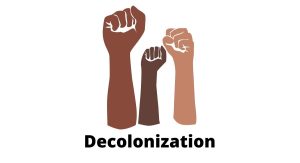Ananya Tina Banerjee and co-authors just published an excellent piece in The Lancet on white saviorism in global health. They remind us that global health leadership and power continues to be dominated by the global north – and that 85% of all global health organizations are headquartered in Europe and North America. They point out that, despite our decolonizing efforts, that there is limited discussion of acknowledging the colonial foundations of global health or the need for reparations for colonial…
Category: Decolonization
Colonialism is a longstanding historical and social phenomenon as much as well as a mindset. Throughout the history of colonialism, neo-colonialism, and contemporary practices of global health assistance are the dominant relationships of power and privilege that are perpetuated by people and institutions of the global north toward those of the global south.
[VIDEO] Madhu Pai Lecture on Global Health Decolonization
It is now fashionable to talk about decolonization in global health, but the landscape of global health continues to be dominated by those with power and privilege. Many who espouse decolonialization make little effort to transform the power and dominance from the global north that pervades global health activities. Madhu Pai has written and spoken extensively about the challenges of genuine decolonization, and spoke as the Stephen Stewart Gloyd Endowed Lecturer on May 16 at the UW about how we…
[PODCAST] Homegrown solutions and sustainable funding
The significance of conducting research locally cannot be understated when it comes to developing innovative solutions that are tailored to meet specific local needs. In this context, sustainable funding is crucial to scale up these ideas and make them accessible to the masses. In this podcast, Professor Yap Boum shares his views on the importance of home-grown solutions by highlighting the example of rapid antigen testing for the SARS-CoV-2 virus. He draws upon his experiences with organizations like Epicenter Africa,…
The White-Savior Industrial Complex
“If we are going to interfere in the lives of others, a little due diligence is a minimum requirement,” Teju Cole reminds us in his recent article in the Atlantic Magazine. He argues that Western aid often fails to understand the complex issues facing African countries and instead reinforces the idea that Africa is in need of salvation from the West. He also criticizes the use of simplistic, emotionally manipulative rhetoric in Western aid campaigns and the marginalization of African voices in…
[BOOKS] on Decolonization
Here are book recommendations on decolonizing the global health space: “Wretched of the Earth” by Frantz Fanon (1961) Fanon’s seminal work on decolonization explores the psychological and sociopolitical effects of colonialism, offering critical insights into the process of liberation and self-determination. “The Colonizer and the Colonized” by Albert Memmi (1957) Memmi’s analysis delves into the complex dynamics between colonizers and the colonized, providing a nuanced examination of power and resistance during the process of decolonization. “Black Skin, White Masks”…
Allyship and collective liberation
Pai reminds us that global health was born out of colonialism and white supremacy -still firmly centered in power and privilege. Two-thirds of GH agencies have HQs in just 3 countries: USA, UK, and Switzerland. Focus is on generosity and saviorism, hoarding vaccines, and hand-outs with the trickle-down charity model. He quotes Ijeoma Nnodim Opara,”“A critical analysis of colonialism is fundamentally intersectional and must locate its construction, and thus, deconstruction, in the intersection of white supremacy, global anti-Blackness, patriarchy, capitalism,…
Can the Gates Foundation Decolonize itself?
Gates Foundation: The Gates Foundation Avoids a Reckoning on Race and Power | The Nation Can philanthropy decolonize? Only if wealthy donors grapple with the difference between giving away money and actually sharing power. By Tim Schwab OCTOBER 2, 2021 https://www.thenation.com/article/society/gates-foundation-colonialism/
How we talk about global health
How we talk about global health: David Verga (PATH) November 2020: As James Baldwin points out in Notes of a Native Son, “the root function of language is to control the universe by describing it.” Regardless of our intent, the words we use have material consequences. As NGOs, the way we describe our work shapes the way others see it, and think about it, and act on it. Verga’s examples include casual use of terms like ‘beneficiary,’ ‘on-the-ground,’ and ’empower.’ https://www.path.org/articles/how-we-talk-about-public-health-and-why-it-matters/




